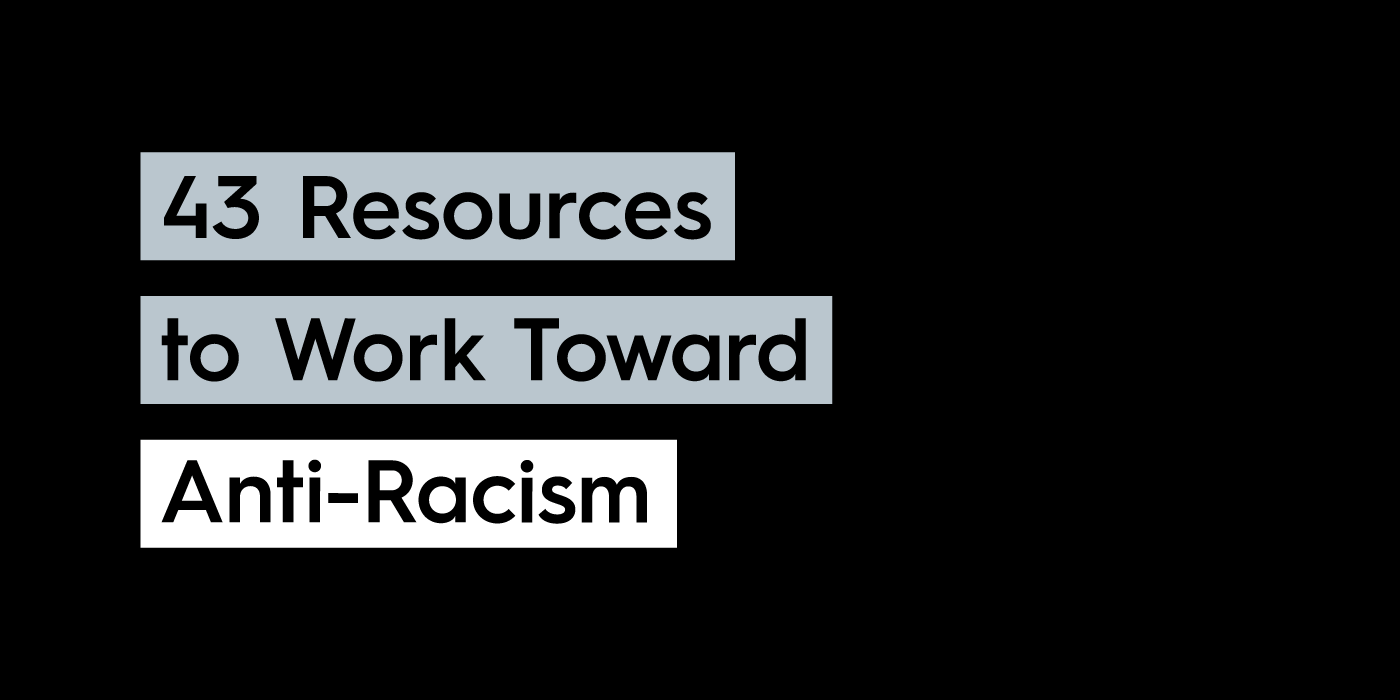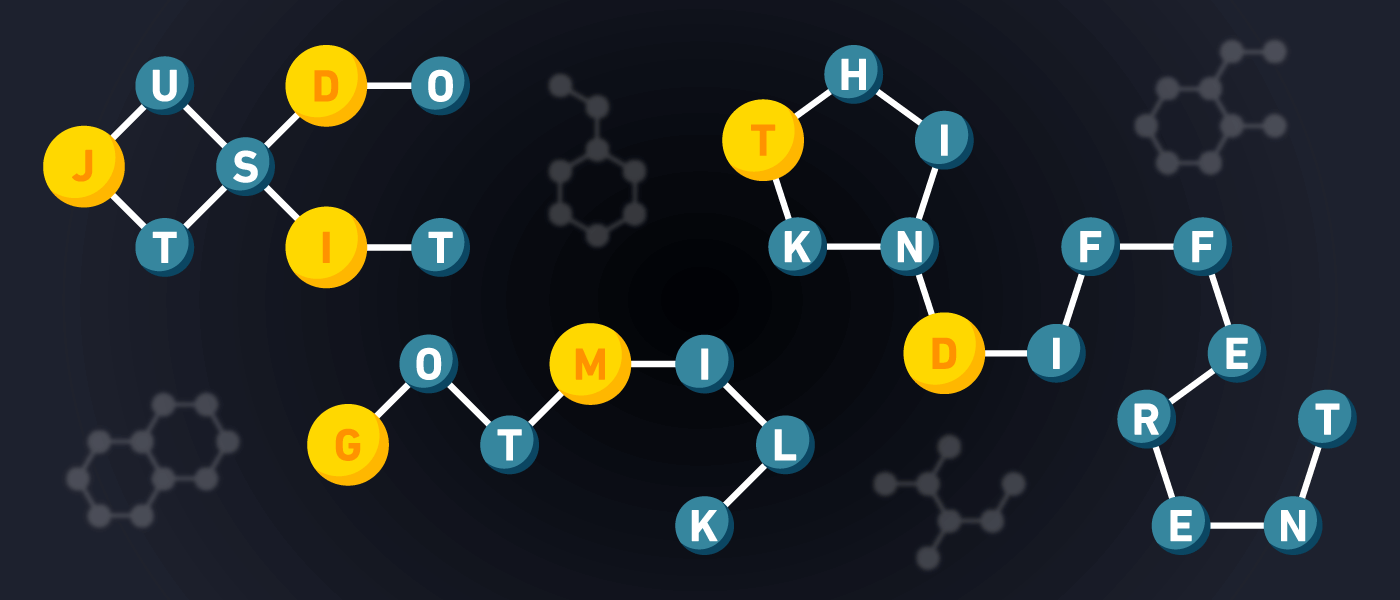In solidarity with Black Lives Matter, we aren’t publishing our regularly scheduled content this week. But because we know how powerful content can be, we’re using this space to amplify Black voices and support anti-racism work.
Here are 43 resources personally recommended by our team. These people, organizations, and works of art have moved us, educated us, inspired us, or changed our view of the Black experience and how we can show up for the community. We hope they inspire you too.
43 Resources to Work Toward Anti-Racism
- Red Line Art Series by Greg Edwards: A stunning visual art series highlighting the practice of Redlining in America’s cities, which has created economic disparity that affects communities today. —Katy French, Managing Editor
- #8cantwait: A list of police policies you can start calling your mayor or sheriff about immediately. —Adam Chung, Designer
- Blacks Who Design: A Twitter directory of accomplished Black designers. —Abheeth Salgado, Art Director
- Othering & Belonging Institute at UC Berkeley: The Institute brings together researchers, organizers, stakeholders, communicators, and policymakers to identify and eliminate the barriers to an inclusive, just, and sustainable society in order to create transformative change. —Jason Lankow, Cofounder
- Who Belongs?: A podcast by the Othering & Belonging Institute at UC Berkeley that addresses the question of who belongs and explore a range of policies, movements, scholarship, and narratives that get us closer to the goal we seek: a society where all belong. —Andrea Bravo-Campbell, Director of Creative Operations
- HotBoxin’ Podcast with Mike Tyson ft. Van Jones: Van Jones is like the Van Gogh of fighting for justice and human rights. But Van Gogh never helped pass bi-partisan criminal justice reform. —Andrew Effendy, Designer
- Hey, Jason!: A podcast about masculinity and the Black male experience. —Asher Rumack, Director of Strategy
- Project Nia: As of 2015, Black youth are 5X more likely to be detained or committed (incarcerated) compared to white youth. Project Nia is a grassroots organization that works to end the arrest, detention, and incarceration of children and young adults by promoting restorative and transformative justice practices. —Daniella Hughes, Finance + Operations Manager
- All Star Code: An organization that creates economic opportunity by developing a new generation of boys and young men of color with an entrepreneurial mindset who have the tools they need to succeed in a technological world. —Daniel Pickering, Developer
- Narrative 4 Field Exchange Program: Narrative 4 is a global network of educators, students, and artists that uses art and storytelling to build empathy between young people while equipping them to improve their communities and the world. Their exchange program is an immersive experience designed for students from different backgrounds, cultures, and communities to explore one another’s homes and histories. —Desiree DeLattre, Account Director
- Stranger Fruit photo series by Jon Henry: Per the artist: Stranger Fruit was created in response to the senseless murders of Black men across the nation by police violence. Lost in the furor of media coverage, lawsuits, and protests is the plight of the mother who, regardless of the legal outcome, must carry on without her child. These photographs depict mothers with their sons in their environment, reenacting what it must feel like to endure this pain. —Elise Kaufmann, Strategist
- Justice in June: A schedule of what to do each day to become more informed—step one to become an active ally to the Black community. —François Matus, Art Director
- The Public Health Approach: A framework recommended by Minneapolis City Councilmember Phillipe Cunningham for building alternative systems of public safety, outside of policing, that are rooted in community and justice. —Jenny Famularcano, Designer
- Selma (directed by Ava DuVernay): A powerful film based on the 1965 Selma to Montgomery voting rights marches. —Jay Kim, Designer
- Color of Change: An organization that leads campaigns to move decision-makers in corporations and government to create a more human and less hostile world for Black people in America. —Jonathan Sweet, Senior Producer
- Long Walk to Freedom by Nelson Mandela: A powerful autobiography that chronicles Mandela’s early life, coming of age, education, and 27 years in prison fighting apartheid. —Josh Ritchie, Cofounder
- Heavy: An American Memoir by Kiese Laymon: A powerful and provocative memoir in which Laymon explores what the weight of a lifetime of secrets, lies, and deception does to a Black body, a Black family, and a nation teetering on the brink of moral collapse. —Kaede Holland, Director of CRM
- Hale County This Morning This Evening (directed by RaMell Ross): A film capturing intimate and personal moments from the lives of the Black community of Hale County, Alabama, forming an emotive impression of the historic South and consequences of racism while upholding the beauty of life. —Katie Raney, Art Director
- Monique Melton: A Black anti-racist educator, podcast host (Shine Brighter Together), author, and speaker. —Kellyn Kawaguchi, Media Manager
- Mona Chalabi: A data journalist, artist, and public speaker who addresses the most pressing social injustices through accessible and engaging writing and illustrations. —Lauren Breen, Marketing Manager
- The 1619 Project: A multimedia piece by the New York Times that explores the legacy of slavery in the U.S. and how the Black American experiece has been shaped since the arrival of the first African slave ship 400 years ago. —Megan Lieberman, Strategist
- Rachel Ricketts: A racial justice educator providing online spiritual activism courses and other resources. —Michelle Kirk, Producer
- Campaign Zero: A police reform campaign proposed by activists associated with Black Lives Matter. —Nate Butler, Creative Director
- GirlTrek: An organization that encourages African-American women and girls to use walking as a practical first step to inspire healthy living, families, and communities. —Phuong Dinh, Designer
- Black Girls Trekkin’: A Los Angeles-based community empowering women of color to spend time outdoors, enjoy nature, and protect it. —Rendell Ascueta, Designer
- The Conscious Kid: A research and policy organization dedicated to reducing bias and promoting positive identity development in youth. —Ryan Shoe, Senior Video Producer
- The Loveland Foundation: A foundation focused on providing mental health and wellness support for Black women and women of color. —Shea Costales, Associate Producer
- Why Not the Right Thing the First Time by poet Nikki Giovanni: Enjoy this powerful 2017 TEDx talk. —Tamara Hlava, VP of People and Culture
- Lisa Fields: The founder of Jude3project, an organization poised to help members of the Black community navigate questions of their faith and culture. —Travis Keith, Account Director
- 13TH (directed by Ava DuVernay): A documentary featuring scholars, activists, and politicians who analyze the criminalization of African-Americans and the U.S. prison boom. —Brenna Haragan, Producer
- Ta-Nehisi Coates: He is one of the best writers in America. Read his books! Or, an easy and powerful introduction is his interview on the OnBeing podcast: “Imagining a New America.” —Matthew Deakin, Producer
- L.A. artist Calida Garcia Rawles: The photo-realistic paintings use water as a visual language to address racial and gender politics. —Erika Imberti, Editor
- National Society of Black Engineers, Jr.: This organization helps young Black students envision themselves in STEM careers (science, technology, engineering, mathematics) by providing students in grades 6–12 with fun, educational STEM activities and events. They also offer NSBE and corporate-sponsored scholarships to students entering college to major in STEM fields. —Tommy Buzelli, Developer
- National Church Adopt-a-School Initiative: Founded by Dr. Tony Evans, the inititative influences positive social change in urban youth and families through the public school system and areas such as economic development, education, housing, health revitalization, family renewal, and racial reconciliation. —Brian Wolford, Senior Producer
- Code2040: A nonprofit activating, connecting, and mobilizing the largest racial equity community in tech to dismantle the structural barriers that prevent Black and Latinx technologists from fully participating in the tech industry. —Chad Giacopelli, Director of Interactive
- The Last Artful, Dodgr, Ural Thomas & the Pain, Chanti Darling: I want to amplify the voices of some local (PDX) Black musicians who give so much of themselves to their art and to our community. —Jeremy Fetters, Director, Client Services
- Anti-Racism Resources: A roundup of ways that white people and parents can deepen their anti-racism work, compiled by Sarah Sophie Flicker and Alyssa Klein. —Kelsey Cox, Director, Client Services
- Roxane Gay: A wonderfully talented writer with a thoughtful perspective on many social issues. This essay helped me better understand how I need to show up. —Ross Crooks, Cofounder
- People of Craft: A showcase of Black and POC in design, advertising, tech, illustration, lettering, art, and more. —Walter Olivares, Junior Art Director
- CBC PAC: I believe that if you want to affect positive change in your community you have to vote for people who represent your community. Change can happen, and your rights to vote will never be taken away. Vote local, vote state, vote national, vote in the primaries, vote in the generals. The CBC PAC aims to increase African-American representation and Non-Black Allies in Congress. —Cale Dunlap, Senior Developer
- Black Game Developers: A Twitter account that promotes the work of Black game developers. —Charlie Noard, Designer
- 3 Ways to Speak English: In her powerful spoken-word essay “Broken English,” Jamila Lyiscott, Ph.D celebrates—and challenges—the three distinct flavors of English she speaks with her friends, in the classroom, and with her parents. —Elizabeth Spurbeck, Producer
- Moonlight (written and directed by Barry Jenkins): A coming-of-age film that tells the story of a black man’s life in Florida in three stages. It explores the difficulties he faces with his sexuality and identity, including the physical and emotional abuse he endures growing up. —Garner Dumas, Motion Designer
We know we have a lot of work to do, and we hope this list is a helpful start for others, too. (BTW, here are 10 reasons why supporting BLM is so important.) We’re also always looking for more ways to learn, grow, and challenge ourselves. If you have resources that can help us in this journey, feel free to drop them in the comments. In the meantime, the good fight continues…
Peace & Love,
Column Five




